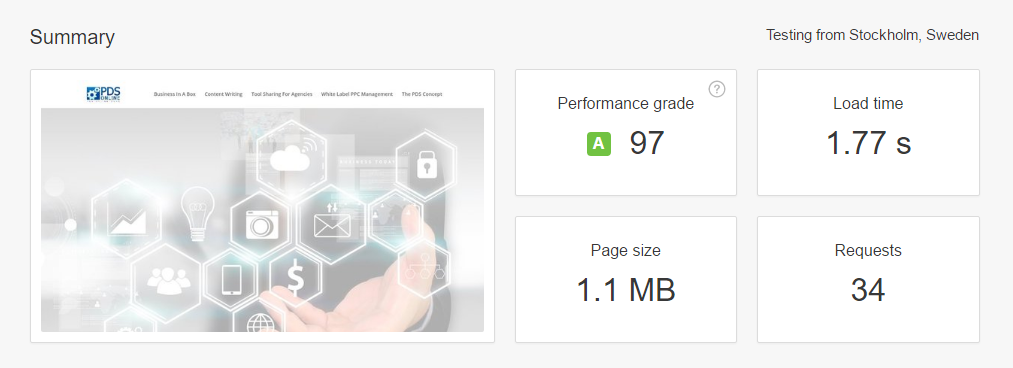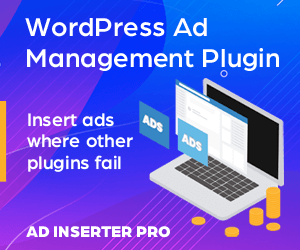
The Importance of Website Load Speed
Digital Marketing, SEO June 1, 2016 No Comments on The Importance of Website Load SpeedThere are few people who will argue that website load speed is not important. Getting it right can be a major source of frustration but getting it wrong can ultimately lead to a negative effect on your bottom line of your profit and loss account resulting from the loss of business.
This may sound a little drastic but in actual fact there are studies that will back this up. Recently some surveys were conducted by Akamai and Gomez.com and the result showed that more than 50% of users expect websites to load in under 2 seconds. Frighteningly, the majority of these will give up if the page hasn’t loaded in 3 seconds. The study also showed that 79% of online shoppers wouldn’t visit a website again if they had a bad loading experience and 44% of these would tell a friend or colleague about the experience.
How do you know how quickly your website loads?
Website such as pingdom.com or indeed Firefox browser plugins such as Page Speed are good starting points and will give you an idea how quickly your site loads in comparison to others. Google Labs have also released Page Speed Online that is available as a Chrome extension. Running one of these programs will give you a report on high priority, medium and low priority fixes that you can adopt to increase the speed of your website. The basic report will show you pain points on your website and give you an idea of where to start optimising.
Pingdom has recently updated it's user interface and it is now easier to choose the location of where you want to test your website speed along with other improvements including quicker access to the improvements needed on your site.

How can you optimise load speed?
There are always ways that you can decrease load speed regardless of how quickly your site loads. Here are some suggestions that may help you:
Optimise Website Images
Wherever possible try to reduce the size of the images on your site. Photoshop 'Save for Web' feature can be a lifesaver when it comes to optimising image file size. Although there are automated options available online such as tinypng.com, I recommend reducing the size of your images manually in Photoshop.
- Use jpg if possible
- 60% Quality is OK
- Enable Progressive Load
- These options will give you the smallest file size possible while still retaining sufficient quality.
Cache Your Site
Plugins such as WP Total Cache or Auto Optimize can help you to cache the latest version of your website therefore reducing the need for a browser to generate the page every load. You may need to try a few different plugins until you find the one that works best for your site. As an additional measure you can also remove search query strings to shave a few extra milliseconds from your load time.
Get a Suitable Network
If your website is particularly popular you will need to network that is capable of being able to cope with the traffic. Cloudflare which is a Content Delivery Network (CDN) is a great option here and will undoubtedly increase your load speed
- Use GZIP compression
This is best discussed with your web host although if done correctly it is possible to reduce files sizes by as much as 70% – again without significantly reducing the quality of images or videos on the site.
Does Google care about load time?
Google takes a very keen interest in load time as well as listening to what their user want and demand. Google frequently consult with surfers and in a recent experiment Google Vice President Marissa Mayer asked users if they thought 10 or 30 results per page was best? The answer was not surprisingly 30 results per page so Google made the changes.
The outcome was that the load speed of the page was slowed by around 0.5 seconds but amazingly this lead to drop in traffic of around 20%. This just demonstrates the degree that you need to go to in order to shave time off your load speeds. If this is Google, imagine the consequences for your website for a half second delay.
How does load time load time affect SEO?
Although load time is not the most important factor when it comes to SEO it is certainly something that you should consider. Load time is one of well over 200 signals that are taken into consideration when Google considers your rankings but it is becoming more important along with other factors including mobile friendliness and ease of navigation.
As we have said load speed plays a big role in how your website is perceived by users so doing all you can to improve load speed is vital.
So does speed matter?
Slow load times not only have an adverse affect on your SERPS but the conversion rate and your bottom line as we stated at the start of the article will be adversely affected. Shave off half a second of load speeds here and there will increase the trust in your site and keep the 44% of users who complain to friends and family about website load speeds happy. Hopefully, they will be as quick to report back with positive experience that they have had and that they will assist you to continue to grow your business.
- The Quintessence of Cybersecurity and Stellar IT Support - November 9, 2023
- Choosing the Right Payment Processor for Your Website - March 3, 2022
- Choosing a business management system - June 11, 2020





Leave a comment
You must be logged in to post a comment.